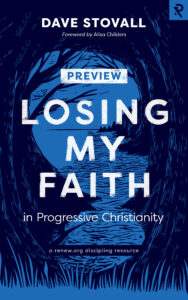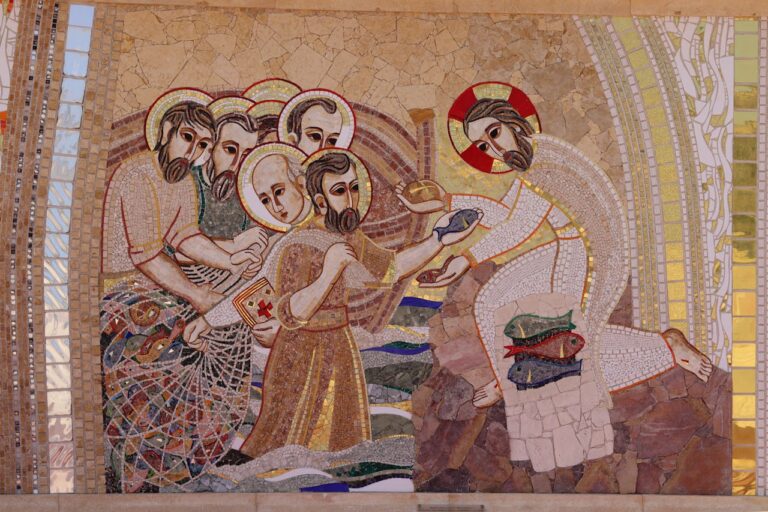Your view of Jesus is probably too small.
Throughout Jesus’ life, we see people divided over Jesus. Some hated him, some loved him for the miracles he did, almost everybody misunderstood him, and a few (who understood him best) worshiped him.
Same is true today.
Everybody has their opinions about Jesus, many of which fall far short of who he really is. We need to carefully test how people speak of Jesus, since many present a false version of Him. Many call Him not much more than a teacher, some a social justice revolutionary, some an extraterrestrial or enlightened master. Jehovah’s Witnesses equate Him with Michael the Archangel, and Latter-day Saints say He’s the spirit-brother of Satan. Islam calls Him a prophet. The Freemasons claim compatibility with all religions, which is why we find Freemason writings which use Scripture with the name of Jesus cut out. But all of those views and versions of Jesus miss the mark. He is bigger and greater than all of these!
We need to be aware of false versions so we are not deceived into thinking that, just because someone mentions Jesus in a positive light, we are on the same team. Too often, competing ideologies claim Jesus for their team, instead of letting Him be everything He claimed to be.
But false views of Jesus aren’t just a problem out there. I want to talk to you specifically about your view of Jesus. If you have a small or inaccurate picture of Jesus, you can find yourself stuck in sin, addiction, fear, anxiety, and so on and look to things of the world for the solutions to your problems, even as you claim to be a follower of Him.
“False views of Jesus aren’t just a problem out there.”
A major battle we Christians face today is over the temptation to look primarily to popular philosophies or political parties or self-help strategies for help and deliverance from our deepest problems. In this way, we can find similarities with the Colossian Christians Paul wrote to in the first century.
Our problem is, and theirs was, having too small of a view of Jesus.
Like them, we can have scales blurring our vision—scales that need to fall if we are going to see how big Jesus really is. When we face sin, struggles, or suffering, it can feel overwhelming. Addiction seems unbreakable. Fear feels constant. Anxiety, grief, betrayal, or temptation can leave us crushed. We begin to think: This is just too big for me. But Scripture reminds us: it’s usually not that our problems are too big—it’s that our view of Jesus is too small.
“It’s usually not that our problems are too big—it’s that our view of Jesus is too small.”
Let’s walk through Colossians 1:15-22 and let it expand our view of Jesus. Here’s the passage in full:
“The Son is the image of the invisible God, the firstborn over all creation. For in him all things were created: things in heaven and on earth, visible and invisible, whether thrones or powers or rulers or authorities; all things have been created through him and for him. He is before all things, and in him all things hold together. And he is the head of the body, the church; he is the beginning and the firstborn from among the dead, so that in everything he might have the supremacy. For God was pleased to have all his fullness dwell in him, and through him to reconcile to himself all things, whether things on earth or things in heaven, by making peace through his blood, shed on the cross. Once you were alienated from God and were enemies in your minds because of your evil behavior. But now he has reconciled you by Christ’s physical body through death to present you holy in his sight, without blemish and free from accusation.” (Colossians 1:15-22, NIV)
Christ: The Image of the Invisible God (1:15)
Paul begins by declaring, “Christ is the image of the invisible God.”
This is staggering. The God who cannot be seen has made Himself fully known in Jesus. He is not half of God or a reflection of God—He is God in the flesh. At the same time, He is fully human. He felt hunger, sorrow, betrayal, and temptation.
If we lose sight of either truth, we lose Jesus. Forget His divinity, and He becomes a mere moral example. Forget His humanity, and He becomes distant and unrelatable. But in Christ, the fullness of God dwells bodily (Colossians 2:9). He is both the God who saves and the Man who sympathizes. He shows us who God is and also who we are to be. He displays what a Spirit-filled person looks like as the purpose of the Spirit is to make us more like Jesus.
“Forget His divinity, and He becomes a mere moral example. Forget His humanity, and He becomes distant and unrelatable.”
Christ: The Creator and Sustainer of All Things (1:16–17)
Paul continues: “For in him all things were created…all things have been created through him and for him. He is before all things, and in him all things hold together.”
This means every atom, every power, every government, every unseen spiritual force is ultimately under Christ’s authority. The thrones, kingdoms, rulers, and authorities—whether in the spiritual realm or on the political stage—were created by Him and exist for Him.
In a time of political unrest and cultural upheaval, this truth steadies us. Salvation will not come from the left or the right. Our hope is not in a new policy, program, or party. Our hope is in the One who holds all things together—literally. The issue is not left versus right—it is up versus down, Heaven versus Hell.
Christ: The Head of the Church (1:18)
Paul then shifts from creation to new creation: “And he is the head of the body, the church; he is the beginning and the firstborn from among the dead, so that in everything he might have the supremacy.”
Just as creation flows from Him, so does the Church. Through His resurrection, He has brought forth a new humanity. The Church is not a social club or a political machine—it is the living body of Christ, meant to display His presence in the world.
For church leaders, this is critical. Our authority does not come from cultural clout or political alignment but from our Head, Jesus Christ. He is first in everything.
“Just as creation flows from Him, so does the Church.”
Christ: The Fullness of God and the Reconciler of All Things (1:19–20)
Paul writes: “For God was pleased to have all his fullness dwell in him, and through him to reconcile to himself all things, whether things on earth or things in heaven, by making peace through his blood, shed on the cross.”
Here is the heart of the gospel. Jesus is not a half-measure. He is not a partial revelation. The fullness of God dwells in Him. And through His blood, He brings reconciliation—peace between God and humanity.
This is why His being both God and man matters so much. If He is not fully God, His sacrifice has no power. If He is not fully man, His sacrifice cannot represent us. But because He is both, His death and resurrection accomplish what nothing else can: the reconciliation of all things to God.
Christ: The Savior of His People (1:21–22)
Finally, Paul makes it personal: “Once you were alienated from God and were enemies in your minds because of your evil behavior. But now he has reconciled you by Christ’s physical body through death to present you holy in his sight, without blemish and free from accusation.”
This is astonishing. Our sin, addictions, and failures really are too big—for us. But not for Jesus. The One who created everything, rules over everything, rose from the dead, and reigns forever has brought us near. In Him, we are holy, blameless, and without fault.
“Our sin, addictions, and failures really are too big—for us. But not for Jesus.”
Bigger Than We Can Think
And here is the good news: Jesus is not as big as we think—He is bigger than we can think.
He is God in the flesh.
He is the Creator and Sustainer of all things.
He is the Head of the Church.
He is the Reconciler through the cross.
He is the Risen King, seated on His throne for eternity.
Our problems are too big for us, but they are not too big for Him.
So look up. Lift your eyes from earthly fixes and cultural battles. See Jesus as He is. And lead your people to do the same.











